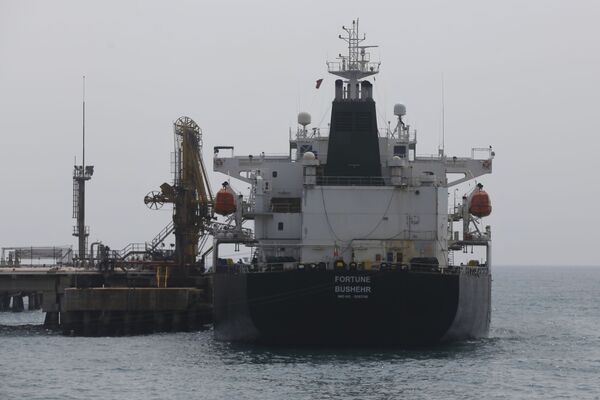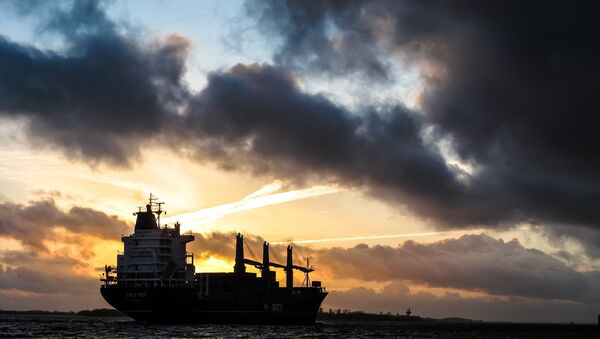Reuters has quoted unnamed industry sources as saying that at least 16 tankers with a total of 18.1 million barrels of Venezuelan oil on board are stuck at sea across the world amid buyers’ fears to contact the vessels to avoid being hit by US sanctions.
The cargo is reportedly the equivalent of nearly two months of Venezuela's current oil output rate.
“This is our third attempt to find a buyer”, according to a source from an oil firm registered as customer of the national oil and gas company Petroleos de Venezuela (PDVSA).
Most of the tankers, which were en route to Malaysia, Singapore, Indonesia, or Togo have been at sea for over six months and have failed to unload due to the threat of sanctions.
Some vessels are reportedly managed by the Amsterdam-based company GPB Global Resources, which was cited by Reuters as saying that they are “conducting business in compliance with all applicable rules and regulations, including US sanctions”. PDVSA and the Venezuelan Oil Ministry have not commented on the matter yet.
The developments come after The Wall Street Journal (WSJ) reported earlier in June that the US Treasury Department’s Office of Foreign Assets Control (OFAC) wants to add up to 50 tankers to its blacklist for cooperation with Venezuela’s President Nicholas Maduro.
This followed the US slapping Venezuela-related sanctions against four entities and four oil tankers sailing under the flags of Panama, Bahamas, and the Marshall Islands.

The sanctions were preceded by Iran sending five fuel tankers to Venezuela in May and pledging more supplies if requested. All ships received a military escort after the US said that it was considering options for responding to the deliveries, which violate Washington’s sanctions imposed on both countries.
Venezuela’s Foreign Minister Jorge Arreaza, for his part, said at the time that the tracing and tracking of fuel tankers entering Venezuelan waters constituted a violation of international law.
US Sanctions Against Venezuela
The Trump administration started introducing heavy economic sanctions against Venezuela's economy in 2018 in a bid to oust President Maduro and replace him with opposition leader Juan Guaido, supported by Washington.
Washington then moved to freeze the US-based assets of PDVSA as part of its efforts to sanction the South American nation. Caracas condemned the move, saying that it was unlawful and accused the Trump administration of seeking to get its hands on the nation’s oil reserves.
The subsequent shutdown of many PDVSA refineries forced Venezuela to consider importing fuel supplies to cover its domestic shortage.



